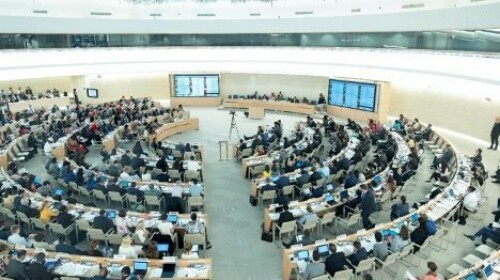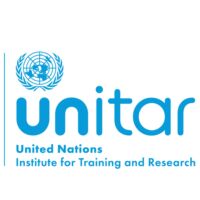Using internet-based training, UNITAR brings participants and trainers together in a unique virtual learning environment. All courses build on UNITAR’s wealth of experience in designing and implementing training workshops on diplomacy and multilateral affairs at the country and regional levels. e-Learning provides specific advantages for geographically and time constrained individuals to obtain valuable information for their day-to-day operations and future projects.
To be awarded the Online Diploma, participants are required to participate and succesfully complete 4 out of 6 online courses offered by UNITAR’s Multilateral Diplomacy Programme Unit from February 2020 to November 2020 and submit a Final Research Paper.
The e-Learning courses the students can choose from are:
- Public and Cultural Diplomacy
- Diplomacy 4.0
- Cosmopolitan Communication
- The Art of Speechwriting
- United Nations Protocol
- Overcoming Negotiation Deadlocks
All courses last between 4 to 6 weeks. The average workload for an individual course is 5 - 8 study hours per week.
The final requirement to obtain the Online Diploma in Multilateral Diplomacy will be the submission of a research paper of between 3,000 and 5,000 words.
Target Audience
The Online Diploma is designed for government officials, diplomats, private sector specialists, practitioners in the international arena, academics, students or any interested participants.
Learning Objectives
After completing the Diploma, students should be able to :
- Demonstrate a comprehensive, substantive and practical knowledge of the current challenges in international affairs and diplomacy;
- Perform in both bilateral and multilateral working environments with increased confidence;
- Develop analytical skills and critical thinking;
- Advance their career through the acquisition of skills that are highly valued in an international working environment.







